NAIRY BAGHRAMIAN
MODÈLE VIVANT (SE PLOYANT)
7 JUNE – 7 SEPTEMBER 2024
ZURICH, LIMMATSTRASSE
Now open at our Zurich gallery, the Berlin-based artist Nairy Baghramian presents a distinguished body of sculpture, employing a vast repertoire of procedures and techniques, as well as an expansive panoply of materials.
Explore the Exhibition
For her inaugural solo exhibition at our gallery in Zurich, Baghramian will present eight abstract sculptures from 2024, five of which carry photographs, under the title ‘Modèle vivant (Se ployant).’ Concluding her series ‘Modèle vivant,’ initially begun on the occasion of her exhibition (mounted to mark her being awarded the prestigious Nasher Prize for excellence in contemporary sculpture) at the Nasher Sculpture Center in Dallas, Texas in 2022, the artist’s new works intensify her probing, as indicated by the French term in the series’ title, of the tradition of drawing, painting or sculpting from a live model. Once more, Baghramian’s non-figurative sculptures on view in Zurich achieve to stage evocations of poses and postures, demeanors and dispositions while avoiding both gesturality and figuration.
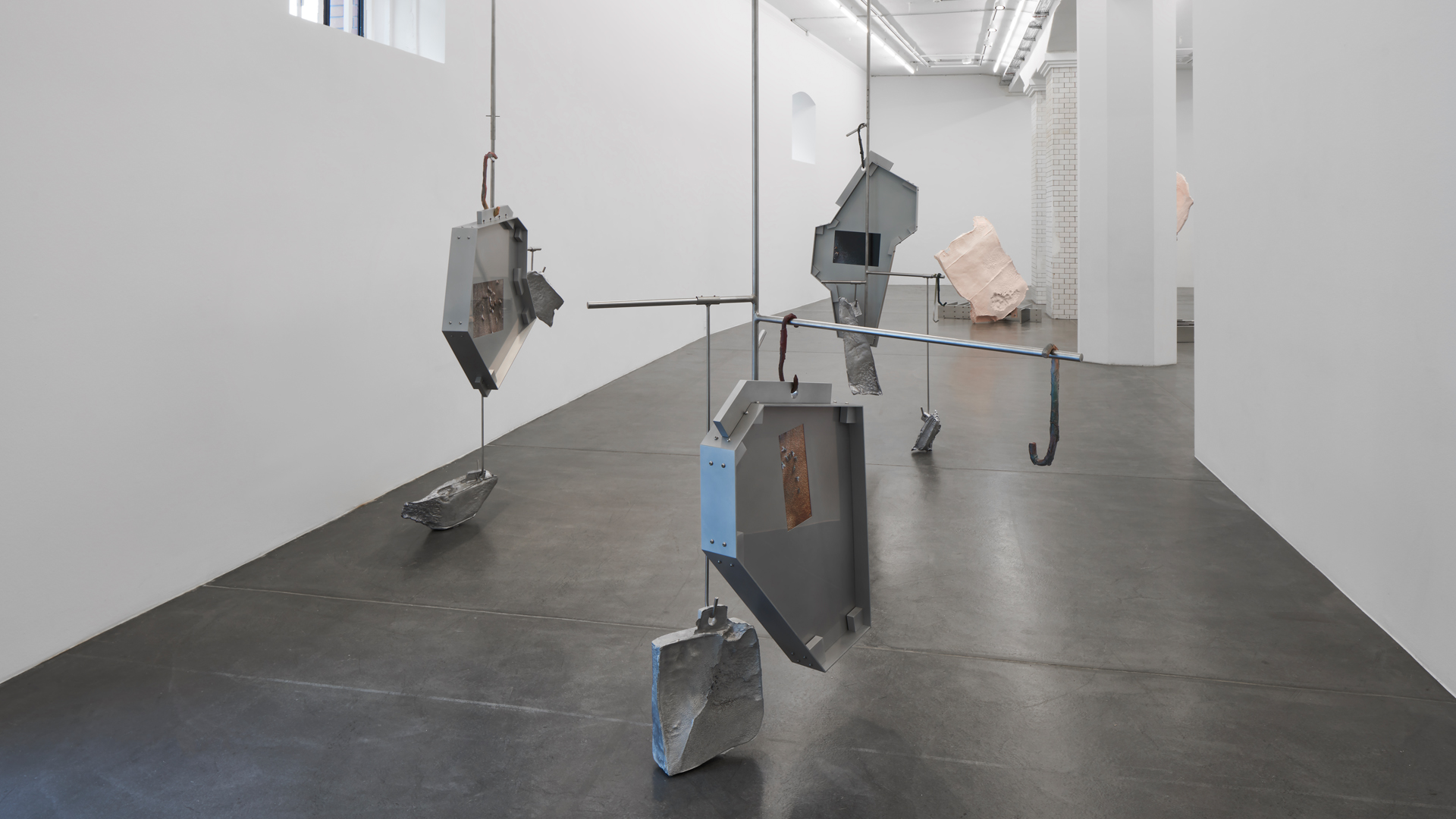
Baghramian’s decidedly abstract, yet eminently allusive (but never anthropomorphic) sculptures have frequently incorporated morphologies or prompted associations with items from other aesthetic spheres of making, using and staging objects—for instance theatre, dance, fashion, interior design, architecture and infrastructure. The larger conditions of artistic production in her immense and challenging oeuvre are situated and reflected not only in terms of sculptural histories since (post-)minimalism, but also vis-à-vis closely related contexts and forcefields of addressing, representing, evoking or enhancing corporal forms, somatic activities or physical processes.
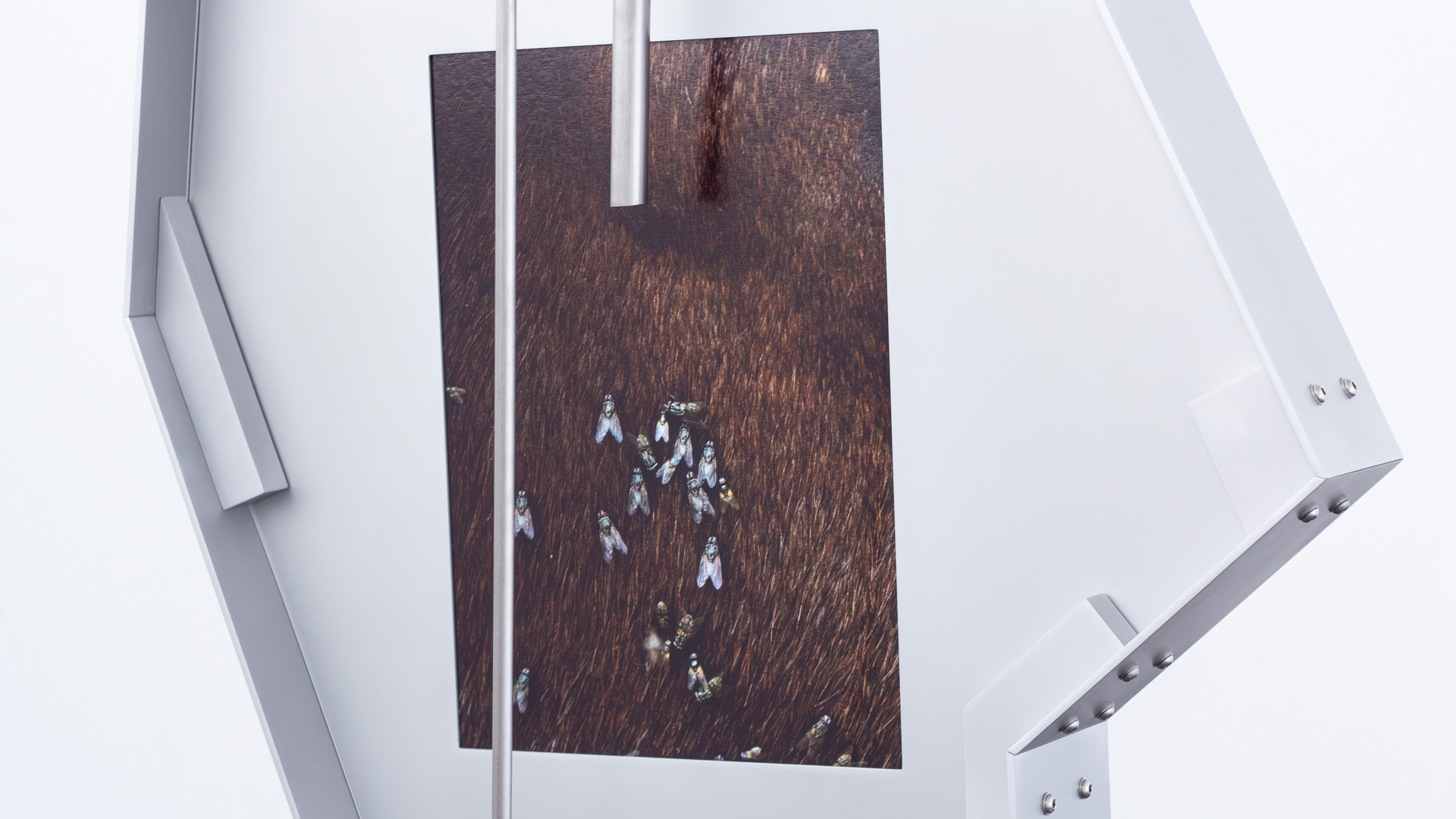
Although the artist’s practice (that also includes photography, drawing, critical writings and curatorial collaborations) is widely noted for eschewing repetition, all of these multi-faceted creations could most adequately be defined as contemporary allegories of sculpture insofar as they truly render the circumstances of their own making tangible in their own appearance. For instance, in her critically acclaimed project ‘Scratching the Back’ (2023) Baghramian has adorned four niches of the Metropolitan Museum of Art’s facade on Fifth Avenue in New York with monumental abstract sculptures. Combining grid formations with brightly colored slabs and swirls, these public works deliberately revisit idioms and principles of the artist’s own practice – only to attune them to the logic of shop window design.
‘… sculpture should have the chance to not fulfill expectations.’
—Nairy Baghramian
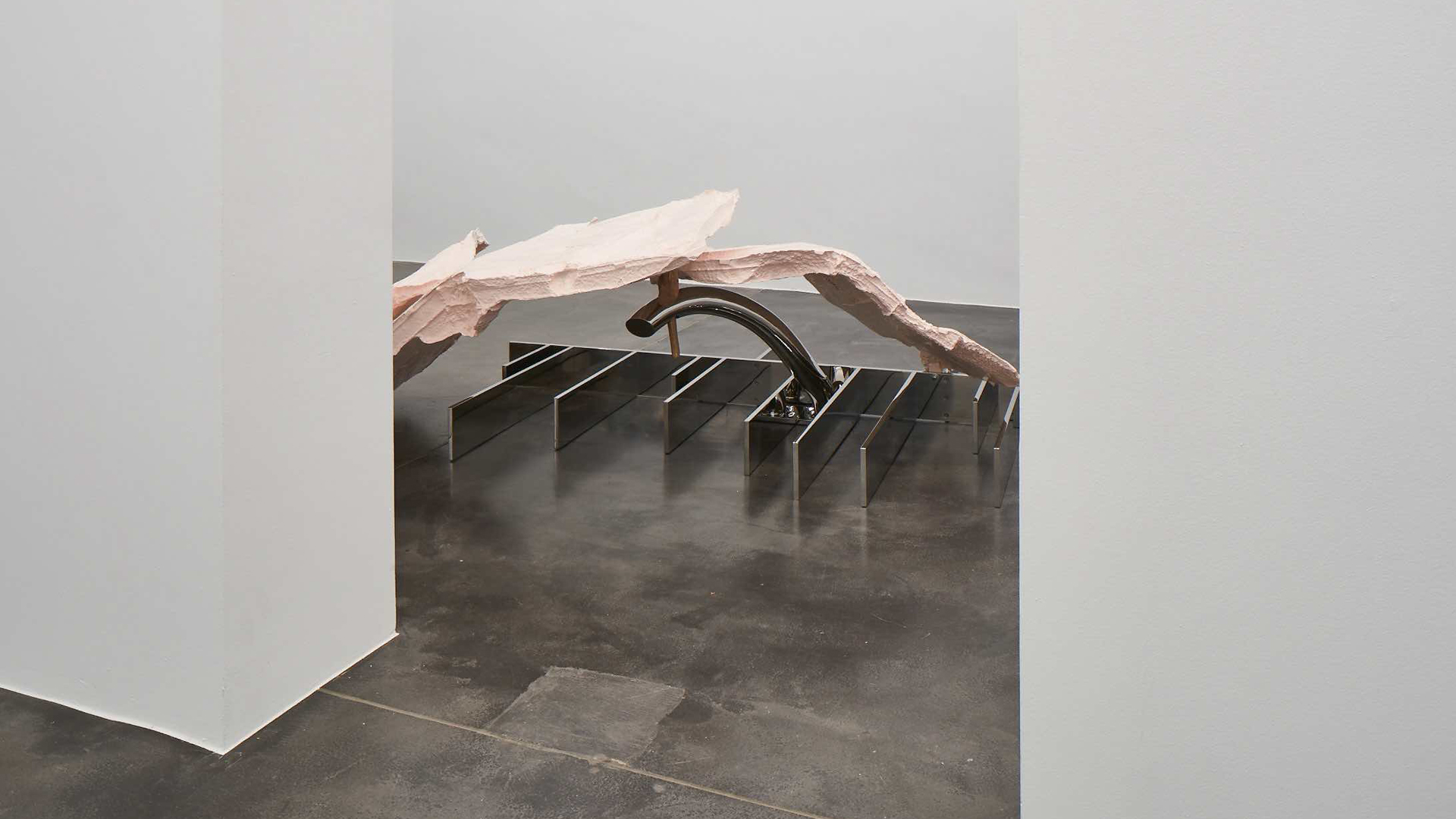
The artist’s sculptures consistently establish an intricate, if not outright precarious rapport with the sites and spaces of their installation (often with recourse to margins, passages or minor details of the given architecture), poignantly confronting the beholding subject and its own habit us with the presence, obstinacy and mutability of all bodily existence and experience. Placed directly on the floor in two corners of the gallery space in Zurich, next to a column or dangling from the ceiling in the entrance area, the eight new sculptures appear to elicit bodies that withdraw and recline.
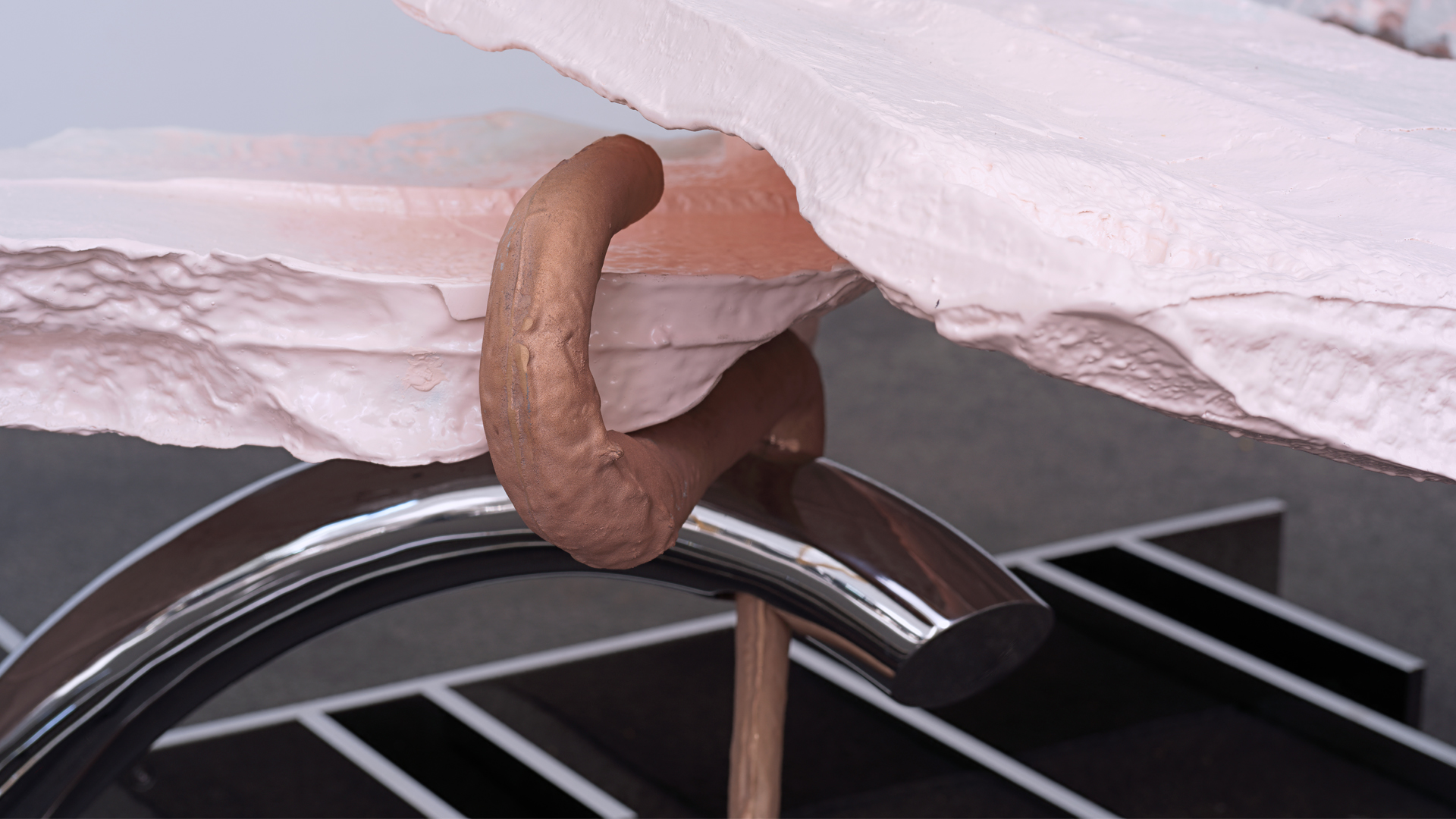
As suggested by the title addition ‘Se ployant,’ Baghramian’s constructions of remotely biomorphic aluminum casts, painted with a light rosy hue, are upheld or undergirded by geometric armatures, hooks and rods, conjuring bent or bowed isolated bodies. Subtle patches of color (‘gris de lin’, ‘givre’ and ‘soufre’) distinguish each sculptural arrangement. As in her 2023 outdoor sculpture ‘S’adossante (Pauline),’ that engages with similar concerns as the ‘Modèle vivant’ series, the assembly of recumbent, leaning and hanging forms grants only approximations and allusions of a (human or other) gestalt.
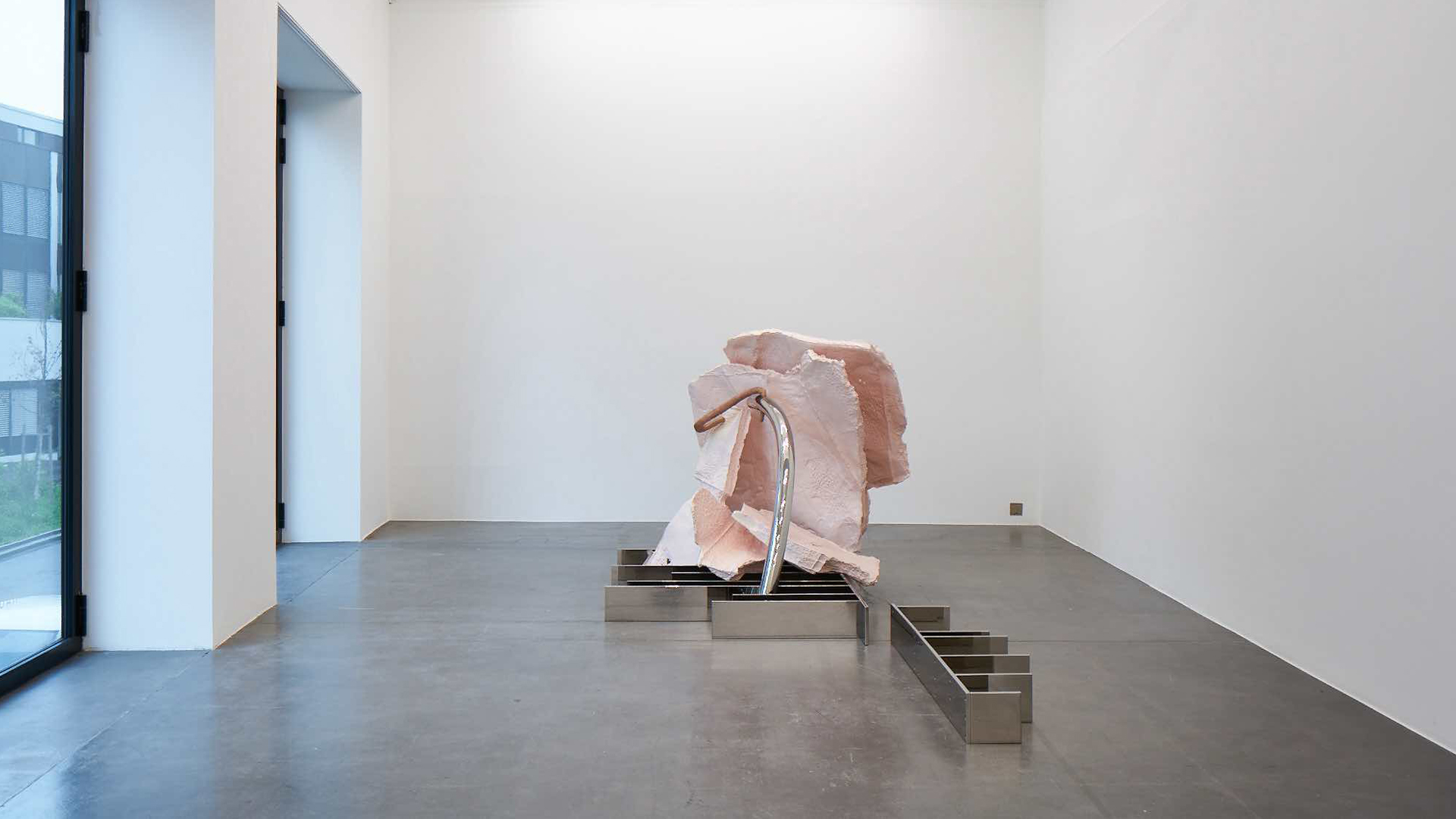
However, three of the works Baghramian conceived for her solo exhibition enact and embody a counter-movement relative to this celebrated ‘model,’ as beholders do not encounter a gendered formation claiming autonomy while being deliberately exposed to their gazes (in the venerable tradition of the Odalisque, Venus or Olympia). Rather, they face reclusive and reluctant bodies that, despite their homogeneity in terms of form and material, register as split and torn, as well as in need of support and prolonged attention. Yet, the geometric apparatuses made of shiny polished stainless steel, said to uphold and fix the organic shapes themselves, are fractured in parts and slightly shifted so that they partially miss to fulfill their function.
The marginal placement and decompressed composition of these works throw the negative space both structuring and surrounding them into vibrant relief. Throughout her trajectory thus far, Baghramian has repeatedly emphasized the constitutive function of absence and emptiness in the production and perception of sculpture.
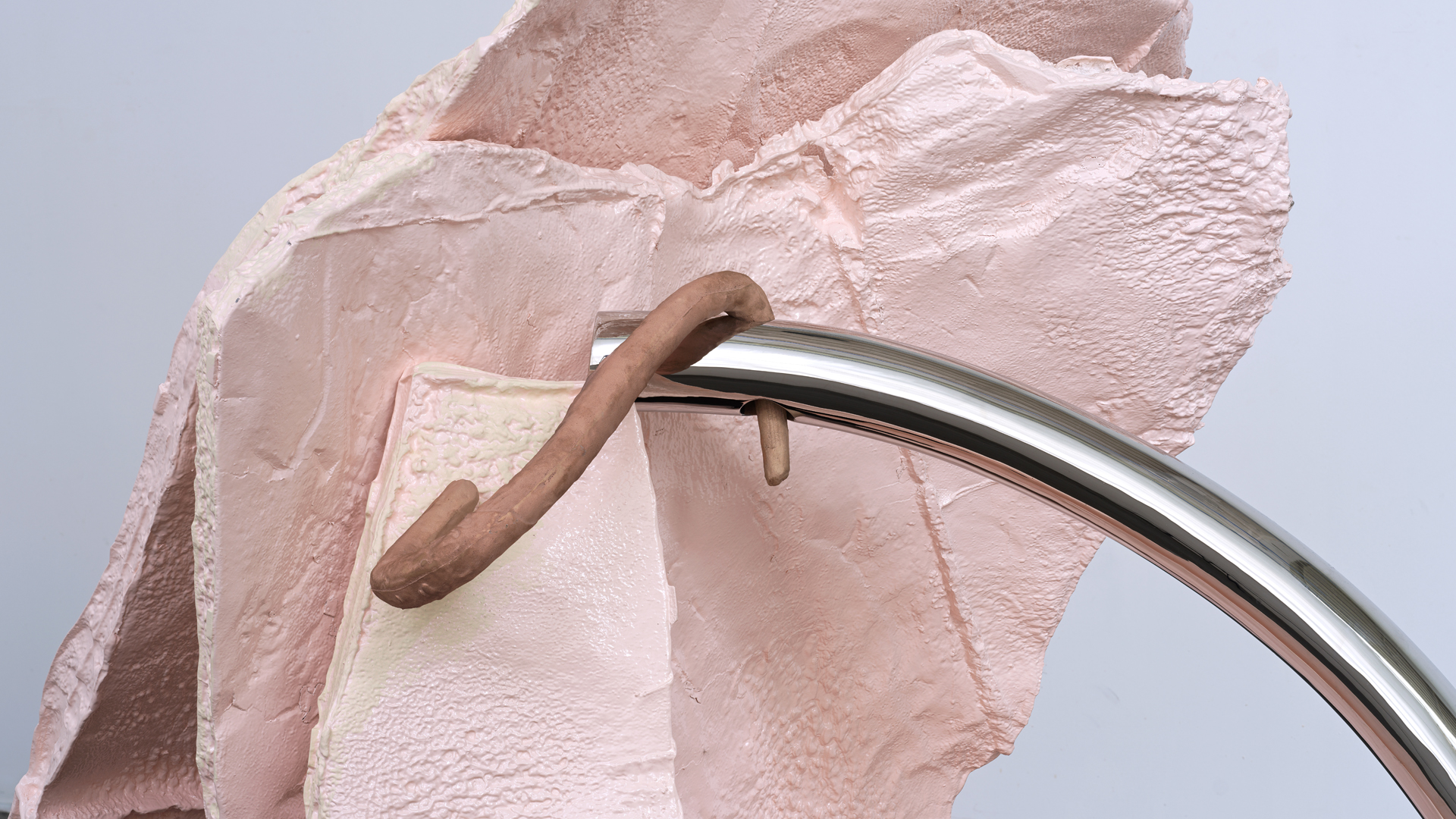
Negating volume in turn invariably renders the pressures (figuratively or literally) exerted on the individual elements of any given group arrangement all the more palpable. In ‘Modèle vivant (Se ployant)’ the unmistakable interstices and gaps carry the same weight as the positive forms of bodies elicited at the hands of the artist. The quintessential sculptural facet of mass (which remains perceivable in its cancellation) consequently takes on a social resonance as well, as its very absence prompts the singular and disrupted bodily formations to retreat, but also gives leeway for perception, critique and reflection. The puzzling photographic detail of a mass of flies besetting the body of a horse (with which Baghramian supplements the front and back sides of her new suspended sculptures) in this light becomes intelligible as a striking image for the irresolvable tension between conforming with and holding against all imposed forces of a present situation.
Text by André Rottmann
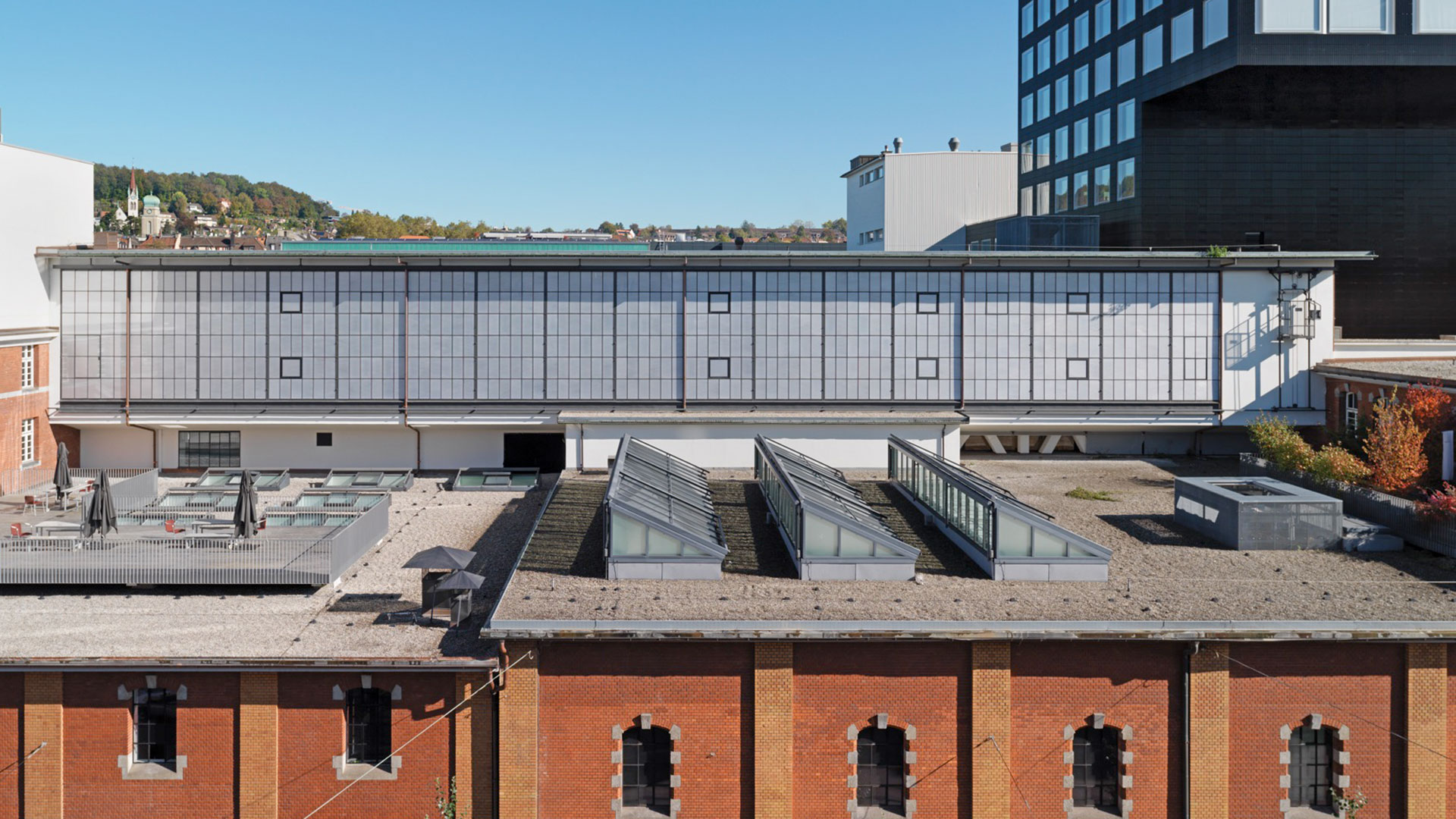
ON VIEW IN ZURICH, LIMMATSTRASSE
‘Philip Guston. Singularities’ is on view from Tues - Sat 11 am – 6 pm through 28 September at Hauser & Wirth Zurich, Limmatstrasse.
Related Content
About the Artist

Nairy Baghramian
Nairy Baghramian’s work traverses the realms of sculpture, installation, photography and drawing with fearless experimentation, historical acuity and conceptual rigor. Particularly in her prime medium of sculpture, the artist employs an extensive repertoire of techniques, materials and forms to address the spatial, architectural, social, political and contextual conditions of contemporary art. Using an abstract vocabulary that often combines geometric shapes and organic matter, industrial process and gestural procedure, Baghramian’s abstract yet eminently allusive works subtly explore the ligatures between art and other fields of object production (most notably interior design, dance and theater) in order to evoke and address bodies of all variants in both their vulnerability and obstinacy. Through her innovative use of materials and manipulation of familiar forms, Baghramian’s work invites viewers to reconsider their sense of self, space, object and site.
Born in Isfahan, Baghramian had to flee post-revolutionary Iran as a teenager and has been living and working in Berlin since 1984.
Recent solo shows include those at the Aspen Art Museum, Aspen CO (2023); Nasher Sculpture Center, Dallas TX (2022); Carré d’Art, Nimes, France (2022); Secession, Vienna, Austria (2021); Galleria d'Arte Moderna (GAM), Milan, Italy (2021); MUDAM Luxembourg, Luxembourg (2019); Palacio de Cristal, Madrid, Spain (2018); the Walker Art Center, Minneapolis MN (2017); Statens Museum for Kunst, National Gallery of Denmark, Copenhagen, Denmark (2017); Museum of Contemporary Art, Ghent, Belgium (2016); Museum Haus Konstruktiv, Zürich, Switzerland (2016); Museo Tamayo, Mexico City, Mexico (2015); The Art Institute of Chicago IL (2014); Serralves Museum, Porto, Portugal (2014); MIT Visual Arts Center, Cambridge MA (2013); Kunsthalle Mannheim, Germany (2012); the Contemporary Art Gallery, Vancouver, Canada (2012); and Serpentine Gallery, London, UK (2010); Kunsthalle Basel, Switzerland (2006).
Baghramian has also participated at Venice Biennale, Italy (2019 and 2011); Yorkshire Sculpture International, Wakefield, UK (2019); Documenta 14 in Kassel, Germany and Athens, Greece (2017); Skulptur Projekte Muenster, Germany (2017 and 2007); Lyon Biennale, France (2017); Glasgow International Festival of Visual Art, UK (2012); and the Berlin Biennale, Germany (2014 and 2008).
Baghramian has been the recipient of numerous awards including the Aspen Art Award (2023); the Nivola Award (2022); Nasher Prize Laureate (2022); the Malcolm-McLaren-Award with Maria Hassabi (2019); the Zürich Art Prize (2016); the Arnold-Bode Prize, Kassel (2014); the Hector Prize, Kunsthalle Mannheim (2012); and the Ernst Schering Foundation Award (2007).
Her works are held in institutional collections, including Museum of Modern Art, New York NY; Metropolitan Museum of Art, New York NY; San Francisco Museum of Modern Art, CA; Hammer Museum, Los Angeles CA; Salomon Guggenheim Collection, New York NY; Walker Art Center, Minneapolis MN; Tate Modern, London, UK; Centre Pompidou, Paris, France; MUDAM Luxembourg, Luxembourg; Tamayo Museum, Mexico City, Mexico; Jumex Museum, Mexico City, Mexico; Nasher Art Center, Dallas TX; Art Institute Chicago, Chicago IL; MOCA, Los Angeles CA.
Current presentations of her work include ‘YOU ARE HERE* Contemporary Art in the Garden’, MoMA, New York NY, ‘Scratching the Back’, the Metropolitan Museum of Art, New York NY and ‘Julie Mehretu, Ensemble’, Palazzo Grassi Venice, Italy.
Current Exhibitions
1 / 10

















